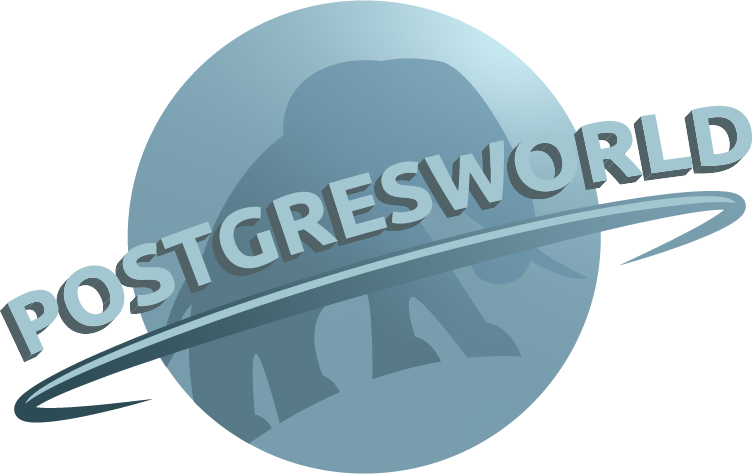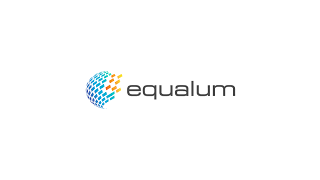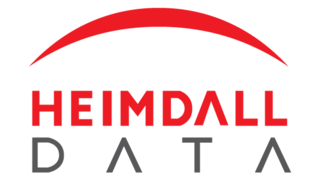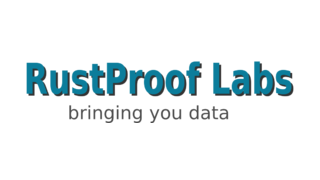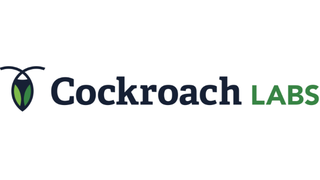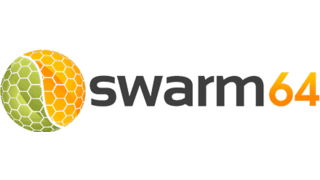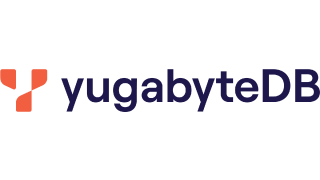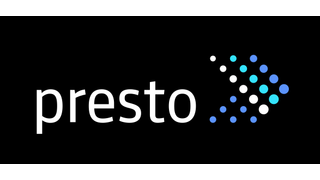Conference Highlights
A Deep Dive into PostgreSQL Indexing
Indexes are a basic feature of relational databases, and PostgreSQL offers a rich collection of options to developers and designers. To take advantage of these fully, users need to understand the basic concept of indexes, to be able to compare the different index types and how they apply to different application scenarios. Only then can you make an informed decision about your database index strategy and design. One thing is for sure: not all indexes are appropriate for all circumstances, and...
PostgreSQL Parallelism Do’s and Don’ts
Join us on September 9 for a 45-minute webinar on parallelism in PostgreSQL. PostgreSQL can apply parallel processing to speed up query performance. But the PostgreSQL query planner and internals are complex, making it a challenge to predict how parallel processing will affect different queries. In this webinar, you’ll learn parallelism best practices to maximize your PostgreSQL query performance. Swarm64 Solution Architect, Sebastian Dressler, will explain: A brief history of...
Monitoring Strategy Considerations
IT Administrators need to keep an eye on Availability, Performance, and Storage of mission- critical environments. There are many things to consider as you develop a Monitoring and Diagnostics strategy. Items to consider include: All-in-one or Specialized? Build vs Buy Real-time diagnostics vs 24x7 monitoring Architecture: Agents? Overhead? Flexibility? Configuration: On-prem? Cloud? Hybrid? Alerting, Notifications, Actions How do I determine what is ‘normal’...
How To Query Against Multiple Postgres Instances As If They're One Server Using Starburst Presto
When the data you need is located in multiple servers you're faced with time-consuming and difficult choices to query it. The easy button for solving this is to use open-source abstraction layers such as Starburst Presto which just needs the connection string for each of the servers to create a single federated point of access for you. The Presto abstraction layer: Connects your Postgres servers together so you can query them as one unit. Creates a scalable architecture where you...
Introduction to PostgreSQL ColumnStore Indexes
Join us on September 29 for a 45-minute introduction to ColumnStore indexes in PostgreSQL. Swarm64 DA 5.0 introduces ColumnStore indexes for PostgreSQL, which can be defined for any table and greatly reduce I/O to speed up query performance. They are ideal for data warehousing and analytics workloads. Swarm64 Solution Architect, Sebastian Dressler, will cover the following: How ColumnStore indexes work ColumnStore index syntax in PostgreSQL What ColumnStore indexes do and...
Live Demo: Creating A Single Point Of Access To Multiple Postgres Servers Using Starburst Presto
Starburst Presto is an open-source method to create a single point of access to multiple Postgres servers at once. In the first session, you saw the architecture and technology behind it. This session will: Review the architecture and environment of Presto. Share the practical considerations and engineering choices for deploying Starburst Presto to solve your problems. Show the most common reference architectures, including small deployments that can run on your laptop for quick...
Data processing more than billion rows per second
Nowadays, GPU is not only for computing intensive workloads, but for I/O intensive big-data workloads also. This talk introduces how SSD-to-GPU Direct SQL, implemented as extension of PostgreSQL, optimizes data flow from storages to processors over PCIe-bus for efficient execution of analytic/reporting workloads. Combination of this technology with comprehensive database features (e.g, columnar-store, partitioned tables, ...) pulled out maximum capability of the latest hardwares, for...
Database Isolation Levels, Data Issues and Global Transaction Consistency
Dirty reads, phantom reads, write skew, ACID rain? These are all data concerns that are often overlooked, but can be very troubling and super expensive. Are you familiar with database isolation levels and how they can impact these data integrity? In this session, we walk through a definition of these potential data issues and then map them talk about database isolation levels. We will then speak to how CockroachDB delivers serializable isolation in a distributed environment to ensure...
PGX: Build Postgres Extensions with Rust
With PostgreSQL recently being voted the second-most loved database, and Rust being voted the most loved programming language, it's about time we be able to integrate the two. PostgreSQL's extension system is second-to-none, however its main barriers are the need for a background in C and an understanding of Postgres' source code. "pgx" aims to mitigate these barriers by providing a Postgres extension framework natural to Rust programmers, new and experienced alike. In this...
Using PostgreSQL and Friends for a Street Sweeping Solver Project
In responding to an RFP to optimize and improve street sweeping routes for a small city in California, we developed a solver based on Google's Operations Research Tools. While the guts of the solver uses OR-Tools, virtually everything else about the project is made possible by PostgreSQL, PostGIS, and pgRouting. In this presentation, I talk about the various ways PostgreSQL and friends made our solver possible. I provide specific examples of the SQL used to: clean OpenStreetMap...
Logical Replication lessons learned for the Data Warehouse
Logical Replication was released in Postgres version 10. We have been using it for a Data Warehouse system for the last year and this talk will show you how to set it up for a Data Warehouse system and some of the pitfalls you will run into. We will have the opportunity to discuss what replication you should be using depending on the work you are doing. Perhaps Logical Replication is not the best solution for what you are doing and some other form of replication would be better.
How to build local communities: a meetup perspective
Today, Chicago PUG is the third-largest in the Western Hemisphere, but it was not the case three years ago. It is easy to announce a new User Group, but how to keep it running and growing? Nobody expected new pandemic and the effect it will take on our lives. The Open Source communities, including Postgres community, which live and breath live discussions, were hit heavily. How did we manage? What's next? Find out during this short presentation!
All about PostgreSQL Security
PostgreSQL provides different levels of security. This talk will cover all the available security techniques used in PostgreSQL 13. We’ll look at client-side security (LibPq, JDBC) through to server-side security. It will cover all supported authentication methods and the pros and cons of all these methods. Some of the key features of the talk are: - Introduction to Cryptography - SSL, TLS, GSSAPI, and OpenSSL - Client-Side Encryption - Securing Authentication - Securing Data on the disk -...
CYPEX: Revolutionizing PostgreSQL Application Development
CYPEX is a user-friendly tool to quickly build PostgreSQL applications. Little coding is needed to achieve big results – which makes it one of the fastest development tools for PostgreSQL. Traditional application development has taken a lot of precious time which is not feasible anymore. Empower professional developers and enable everyone else in your organization to be a part of the solution and not the problem. CYPEX is designed to build PostgreSQL applications faster than ever...
All we need to work with SQL is just SQL
Traditionally, we use Languages and Frameworks interact with Relational Databases. While these are effective in many ways, One problem is that, each of these brings new learning curve. It will be nice if we use SQL itself as the core skill and build application with plain simple SQL skills. In this webinar, I will demo this approach with a case study that builds simple, high performing Java application using Postgres database.
Blockchain as a Database
Throughout the history, exchange of trusted information among people played an essential role in every aspect of their lives: socially, economically and politically. Blockchain is an innovation in database technology for keeping temper proof (trusted) data in a permanent, immutable, decentralized, global, and trustless ledger. It combines distributed computing, databases, networks and cryptography and is relatively new, and it is rapidly evolving. It allows people, organizations and machines...
Unlock Data In Postgres and Query It With Other Sources
Accessing all the platforms your data resides in continues to be a limitation across industries. With standards based SQL abstraction layers, you can create a single point of entry to a diverse set of data sources. Learn how Open source Presto easily provides access to all of your Postgres installations and other data stores as if it were a single data warehouse. This session will: Show how Postgres data can be unlocked and merged, live, with non-SQL data sources including Kafka,...
PostgreSQL Forks and Knives
The number of PostgeSQL forks keeps growing. Some of them are really ancient, while others are relatively new. Redshift, Greenplum, Cockroach, Timescale, RDS, Vertica, you name it. All modern clouds have their own forks of traditional PostgreSQL. But are these databases our familiar PostgreSQL, or something absolutely different? DBeaver supports all the main PostgreSQL forks, and we can confidently say that it is really surprising to find unexpected differences or similarities. If...
Program
postgres-webinar-series has the most awesome program ever! See rock-star speakers cover the topics of
Migrations
How to Move Data from Oracle to Postgres in Near-Real Time by Joshua D. Drake
GIS
Getting Started with PostGIS and OpenStreetMap by Ryan Lambert
Advanced Operations and Features by Ryan Lambert
Exploring OpenStreetMap from PostGIS: Tools and Queries by Ryan Lambert
Loading PostGIS with osm2pgsql by Ryan Lambert
PostGIS Spatial Queries and Performance Tuning by Ryan Lambert
PostgreSQL 12 and PostGIS 3.0 by Ryan Lambert
Ops
FPGA: an Easier Path to Parallelism for Postgres? by Andrew Ellicott
How to Deploy a SQL Database on Kubernetes by Chris Casano
How to Move Data from Oracle to Postgres in Near-Real Time by Joshua Drake
A Deep Dive into PostgreSQL Indexing by Dr. Ibrar Ahmed
Mostly mistaken and ignored PostgreSQL parameters while optimizing a PostgreSQL database by Avinash Vallarapu
Deeper Understanding of PostgreSQL Execution Plan: At plan time and run time by Jobin Augustine
A Deep Dive into PostgreSQL Indexing by Dr. Ibrar Ahmed
Monitoring Strategy Considerations by David Orlandi
PGX: Build Postgres Extensions with Rust by Eric Ridge
Enterprise Authentication and Connection Pooling by Erik Brandsberg
Dev
How To Query Against Multiple Postgres Instances As If They're One Server Using Starburst Presto by Randy Chertkow
The Architecture of a Geo-Distributed SQL Database by Jim Walker
Working with JSON Data in PostgreSQL vs. MongoDB by dharshan rangegowda
NORM - Bridging the Gap Between Applications and Databases by Henrietta Dombrovskaya
Debugging with PostgreSQL by John Ashmead
PostgreSQL Parallelism Do’s and Don’ts by Sebastian Dressler
Introduction to PostgreSQL ColumnStore Indexes by Sebastian Dressler
CYPEX: Revolutionizing PostgreSQL Application Development by Hans-Jürgen Schönig
All we need to work with SQL is just SQL by Sathish Kumar Thiyagarajan
Case Study
YugabyteDB: a distributed PostgreSQL database by Bryn Llewellyn
Community vs. Enterprise Open Source – Which is Right for Your Business? by Justin Reock
Postgres vs. MongoDB for real-time machine learning on wind turbine data by Luis Manuel Carril
Turning PostgreSQL into a Cloud Native Data Service by Julian Fischer
Scaling PostgreSQL: Never Shard Again and Gain Effortless Scale by Jim Walker
Bring Compression to Postgres at Zero Cost of Performance by Tong Zhang
Using PostgreSQL and Friends for a Street Sweeping Solver Project by James E. Marca
How to build local communities: a meetup perspective by Henrietta Dombrovskaya
Data
PostgreSQL Forks and Knives by Tatiana Krupenya
Unlock Data In Postgres and Query It With Other Sources by Randy Chertkow
Live Demo: Creating A Single Point Of Access To Multiple Postgres Servers Using Starburst Presto by Randy Chertkow
Blockchain as a Database by Abdullah Uz Tansel
Logical Replication lessons learned for the Data Warehouse by Pat Wright
Data processing more than billion rows per second by Kohei KaiGai
All about PostgreSQL Security by Dr. Ibrar Ahmed
Database Isolation Levels, Data Issues and Global Transaction Consistency by Jim Walker
